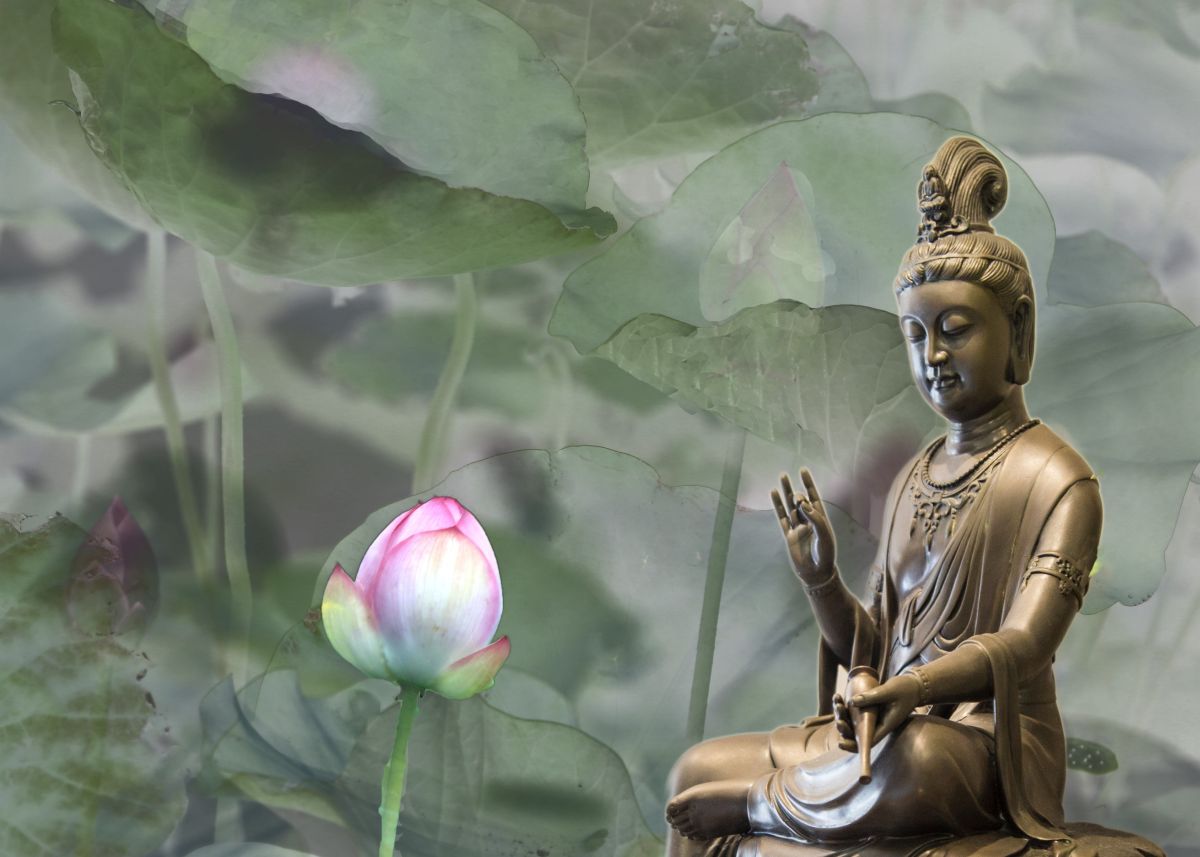Special Topics
Q7: How does taking refuge in the Three Jewels affect our daily lives?

Even though a Buddhist practitioner has taken refuge in the Three Jewels, he or she is still a lay person. As a lay person, one should follow the norms of life for the laity. In addition, one should live an even more positive, harmonious, contented, vigorous and dynamic life than a non-Buddhist lay person would. Only then can a lay Buddhist practitioner find contentment, earn the respect of others, and have a stronger influence on non-Buddhists.
The first and foremost responsibility of a lay person is to build a happy family. That is, one ought to be filial to one's parents and show loving care for one's children. One should use one's best efforts to respect and take care of one's parents and educate and nurture one's children. Only then can a lay person fulfill one's responsibilities, both as a child and as a parent. Husband and wife are the core of a family. Both husband and wife should be faithful to each other, respect each other, and be considerate to each other. As long as the couple has a harmonious relationship, they can still have an adorable family even when living a simple and frugal life.
The foundation of a family's happiness is foremost based on the love of the couple. The well-being of a family in turn is mainly dependent on the balance between its financial incomes and expenditures. Lay Buddhists should engage in legitimate occupations to provide for their livelihoods, with the exception of those related to animal-slaughtering businesses (including fisheries and restaurants providing non-vegetarian food), the karma of stealing / pilferage and larceny (including gambling and smuggling), and sexual lust (including lewd bars, strip clubs and brothels etc.). Otherwise, all other professions are acceptable, be they agricultural, industrial, commercial, governmental or educational. With disposable incomes, one's expenditures must fall within certain limits. In the Sutra of Wholesome Livelihood (the Sujata Sutra), the Buddha recommended that lay Buddhists divide their disposable incomes into four parts: the first part for food and necessities (livelihood expenses); the second for work-related capital (i.e. capital for doing business); the third for family savings; and the fourth for lending money to people to run a business (i.e. profits of lending money). Using this budgetary plan to organize the family's financials is indeed the most secure and scientific income distribution.
However, the role of economics is to facilitate a blissful life, in addition to achieving ethical objectives. Hence, the Buddha rebuked overly stingy individuals who hoard far more wealth than they are willing to spend, and likened them to starving dogs. Conversely, however, the Buddha more strongly rebuked those spendthrifts whose expenditures exceed their incomes, likening them to the seedless udumbara fruit.
Once the family's finances have been fortified, surplus finances that exceed one's daily necessities should be used to cultivate merits and blessings besides maintaining a family. That is, this surplus should be used to make offerings to the Three Jewels, devote resources to public charities etc. Hence, the Samyuktāgama also states that the lay Buddhist's wealth should be used in three ways: firstly, to provide for one's parents; secondly, to raise and nurture one's children and even in aid of relatives, friends, servants and subordinates etc.; and, thirdly, to make offerings to Sharamanas and Brahmins (which includes the Three Jewels).
A lay Buddhist should familiarize him or herself with the Three Jewels as often as possible. However, drawing close to the Three Jewels at the expense of one's family matters and responsibilities toward parents, children and spouse is not what the Buddha would have hoped to see. One's familial obligations should be fulfilled first and foremost.
A lay Buddhist should unconditionally make offerings to the Three Jewels. But if, in so doing, one diminishes one's parents' daily necessities, does not provide enough nutrients to one's children, minimizes one's spouse's living expenses, lowers one's employees' wages etc., then that's not what the Buddha would have hoped for, either, unless by mutual consent of the family members.
A lay Buddhist must not sabotage the family's well-being in pursuit of religion. On the contrary, a lay Buddhist should make one's own family more harmonious and happier after taking up Buddhism. Otherwise, due to your attitude of having no regard for family but only showing concern to the Three Jewels, your family members will not only feel discontent towards you, but will also harbor negative feeling towards Buddhism. In this case, your original intentions to uphold the Three Jewels with reverence would cause your family members to turn against them, which would be very unfortunate indeed.
Extended reading:
Q1: Does taking refuge in Buddhism automatically render me a monastic?
Q2: Why do we receive a Dharma name after the refuge-taking ceremony?
Q3: What do we take the Three Refuges?
Q4: Who can take refuge in the Three Jewels?
Q5: Will those who have not formally taken refuge in the Three Jewels have any merits when chanting Buddhist scriptures or the Buddha's name?
Q6: After taking refuge in Buddhism, is it necessary to set up a Buddhist hall or a Buddha statue at home?
Q7: How does taking refuge in the Three Jewels affect our daily lives?
Q8: Does one have to take refuge in the Three Jewels in order to formally become a Buddhist?
Q9: How many times can a Buddhist take refuge?
Resource: Translation of the extract from "Knowing the Path of Learning Buddhism (學佛知津)" by Master Sheng Yen
Photos: 蔡全
Translation: Shujen Yeh (葉姝蓁)
Editing: Keith Brown, Cheng-yu Chang (张振郁)
